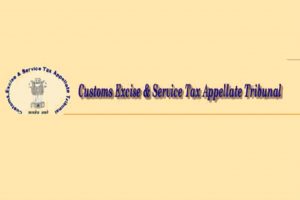Customs, Excise and Services Tax Appellate Tribunal (CESTAT): The Coram of Dilip Gupta (President) and P.V. Subba Rao (Technical Member) partly allowed an appeal which was filed assailing order-in-original passed by the Commissioner of Central Excise, Customs & Service Tax, Cochin.
The appellant manufactured electric cables/ACSR conductors and supplies to M/s Kerala State Electricity Board (KSEB) as per the contract which included a price variation clause. They paid duties at the time of the removal of goods subsequently prices were enhanced retrospectively in view of the increased in the cost of raw material. The differential duty in respect of such goods which were already cleared was paid by issuing supplementary invoices using Cenvat credit.
A show cause notice was issued to the appellant alleging that the supplementary invoices were raised and, therefore, they are relatable to the clearances already made during the previous months.
As per the proviso to Rule 3 (4) of Cenvat Credit Rules, 2004 and proviso to Rule 3 (3) of Cenvat Credit Rules, 2002, the appellant could not have used Cenvat credit, which was taken after the last day of month for payment of duty relating to that month. Therefore, the assessee/ appellant was called upon to pay the differential central excise duty on the supplementary invoices in cash and not using Cenvat credit. The Commission had confirmed the demand of Rs. 89,95,674/- plus interest along with penalty.
The appellant had contended that the supplementary invoices were relatable to the month in which the supplementary invoices were raised and not relatable to the month in which the goods were originally cleared because the duty became payable only when the price was enhanced and not before and that they had correctly availed and utilized Cenvat credit available at the time of raising supplementary invoices in its account and since the duty is relatable to the date of supplementary invoices, no interest was payable. Lastly, he concluded that no penalty was imposable under Rule 25 of Central Excise Rules, 2002 and Rule 15 of Cenvat Credit Rules, 2004 as there was no violation of any Act or Rules and they had paid the duty on such supplementary invoices when they raised.
The Tribunal opined that on the first question as to whether the supplementary invoices relate to the date of original clearance or the date on which the supplementary invoice was raised had been decided in Steel Authority of India Ltd. v. CCE, 2019 (366) E.L.T. 769 (S.C.) and thus interest under Section 11AB needs to be paid by the appellant on the differential amount of duty.
On the second question of whether Cenvat credit can be utilized for payment of duty in view of the proviso to Rule 3 (4) of the Cenvat Credit Rules, 2004, the tribunal found that High Court of Gujarat in Advance Surfactants India Ltd. v. Union of India, 2017 (358) E.L.T. 53 (Guj.) had held that this proviso is ultravires therefore the appellant was correct in utilizing the Cenvat credit for payment of the excise duty.
On the third question of imposition of penalty the Tribunal found that from the facts of the case its clear that assessee has not violated any provision of the Act or the Rules to attract penalty under Rule 25 of the Central Excise Rules, 2002.
The Tribunal partly allowed the appeal and modified the order accordingly.[Traco Cable Co. Ltd. v. Commr. Of CE & Customs, 2021 SCC OnLine CESTAT 2595, decided on 01-11-2021]

